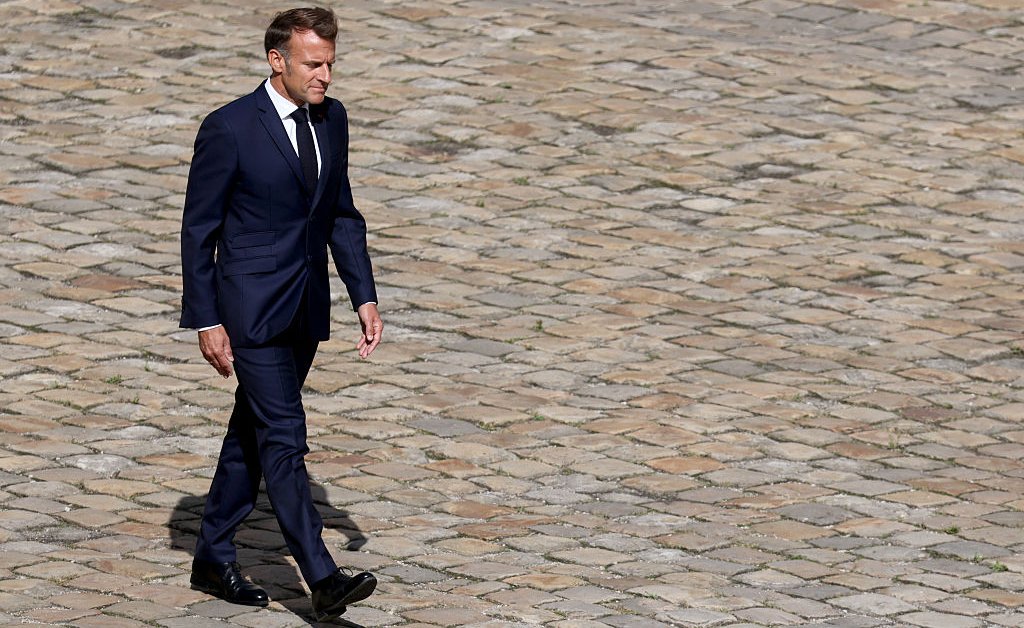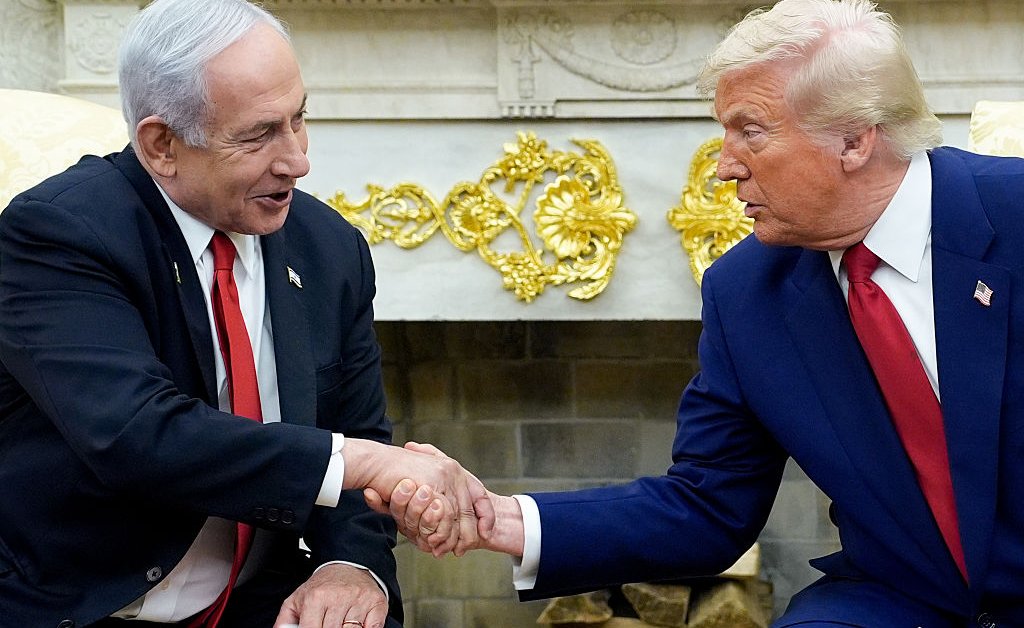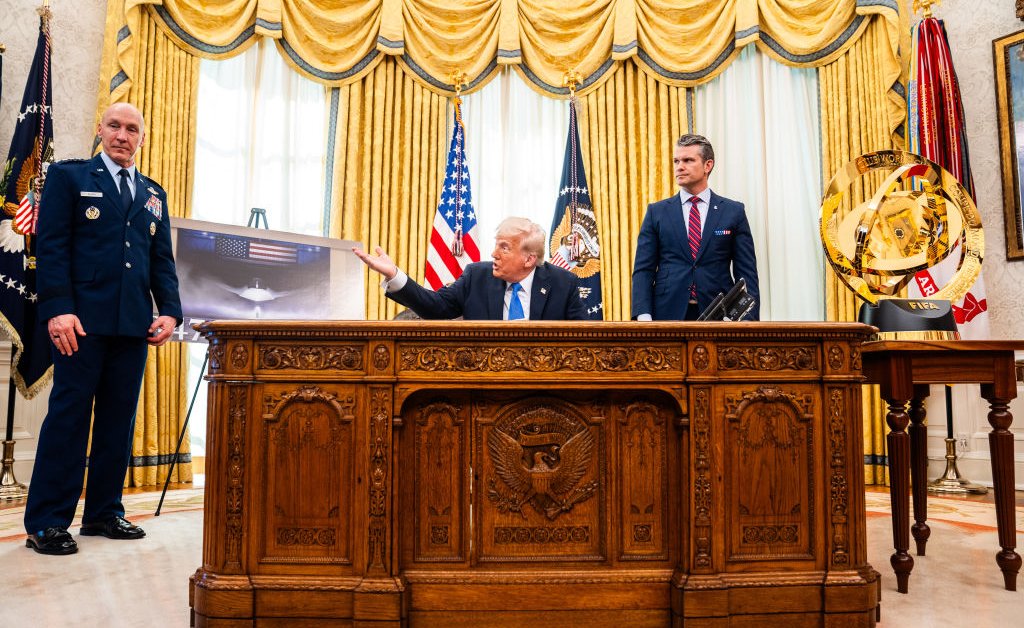The brief and unremarkable tenure of France’s prime minister has come crashing to an end. The 74-year-old François Bayrou resigns on Tuesday after choosing to gamble his political survival on a confidence vote a day earlier—and losing it by a huge margin.
France is now in the throes of a spiraling political crisis. The National Assembly lacks a clear governing majority and Marine Le Pen’s far-right National Rally (RN) seems ever closer to finally winning power. Bayrou deserves a share of the blame, as his attempts to muster support for €44 billion in drastic spending cuts were doomed from the outset. And yet, there’s no doubt who the true architect of France’s political impasse is: President Emmanuel Macron.
Macron may well continue to leave his mark on French foreign policy, benefitting from norms that give presidents broad leeway on the international stage. But on the domestic front, Macron increasingly resembles a lame duck. And with his second and final term set to expire in 2027, a disappointing legacy is starting to take shape: while Macron soared into office on pledges to revitalize French democracy and tamper support for the far-right, he is failing badly on both counts.
Today’s gridlock is a direct consequence of Macron’s actions. His call for snap elections last June resulted in the loss of his Renaissance party’s parliamentary majority and a fiercely divided National Assembly. But there is also a deeper democratic malaise driven by his reluctance to heed the message delivered at the ballot box. While a sweeping majority of French voters backed left-wing and centrist candidates in order to prevent the RN from winning a majority, Macron has, for more than a year, refused to name a prime minister from their ranks, preferring to appoint conservatives closer to his own views and turning the RN into a kingmaker.
“He has an immense amount of responsibility because this dissolution plunged the country into a crisis that should never have happened,” Christopher Weissberg, a former Member of Parliament and spokesperson for Renaissance in the National Assembly, told me.
But Macron’s resistance to sharing power goes back much farther than the snap election gambit—it’s a recurring theme of his presidency.
While a younger Macron touted the need for a “democratic revolution” on the 2017 campaign trail and early in his first term, the former investment banker quickly adopted a top-down style. Unions learned that Macron had little interest in negotiating over reforms that he had already decided were needed. Journalists discovered the president disliked press conferences and preferred choreographed speeches from the Elysée Palace. Even politicians from his own party grew frustrated over his unwillingness to cede decision-making to prime ministers or MPs.
Public backlash against Macron was on full display during the 2018 Yellow Vest movement—protests over a proposed hike in the fuel tax that highlighted broader working-class concerns over living costs and declining public services. That crisis could’ve served as a wake-up call—a sign that Macron should adopt a more collaborative approach, if not reconsider some of his more unpopular economic policies—but Macron took a different course. He chose to make his signature reform a massively unpopular hike in the retirement age from 62 to 64, ramming through the legislation following his reelection as president in 2022. Polls showed consistent opposition and unions organized the biggest demonstrations in decades, but Macron refused to budge.
The latest austerity budget–which included a freeze to welfare benefits, healthcare spending cuts, and more—would have also disproportionately hurt working people. But what especially angered much of the French public was the glaring absence of a democratic mandate behind the proposed cuts. Last summer, French voters made Macron’s coalition a minority in the National Assembly—and yet, somehow the president and his allies were once again trying to force their way. It’s no surprise that Macron’s approval ratings now stand at an all-time low of 15%.
Macron alone cannot be blamed for the rising far-right, which is on the march across the West. But the bar should be high for a candidate who once pledged to “eradicate the anger” fueling support for the RN. Not only has his presidency exacerbated the cost-of-living woes and political alienation that Le Pen and her allies thrive on, but his various attempts to assuage concerns over their most important cause—opposition to immigration—have backfired spectacularly.
Since taking office, Macron and his governments have imposed various anti-immigration measures. That includes 2023 legislation that clamped down on birthright citizenship, whose passage the RN celebrated before the Constitutional Council struck down large parts of the law. Macron has also borrowed from the far-right’s rhetorical toolbox, bringing formerly fringe terms like “immigrationiste” and “décivilisation” into the mainstream. This sort of dog-whistling may be intended to lure hardline conservatives but has only normalized the far-right’s xenophobia.
Macron’s office has said he will name a new prime in a “matter of days.” But the scale of the political fallout and gridlock is so bad that some are openly debating Macron’s early resignation.
Whether Macron departs sooner or later, it’s clear that Le Pen’s party has never been so close to governing France and hostility toward the nation’s political class runs disturbingly high. There is little that brings French politicians together these days, but a majority of them seem to increasingly agree that the solution to either of these problems—the far-right and the country’s democratic malaise—won’t come from the current tenant of the Elysée Palace.








